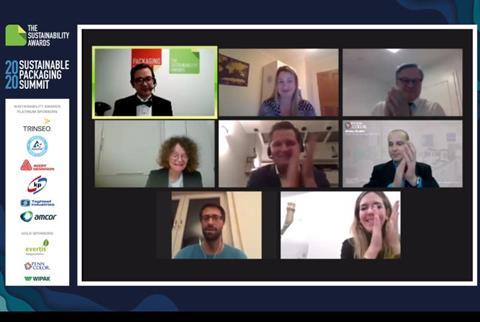
The winners of the Sustainability Awards 2020 have been unveiled in a digital event.
This year’s overall winner was the Fraunhofer Institute for Silicate Research with their bioORMOCER® biodegradable functional barrier coatings, which also won within the Biobased Packaging category. Other big winners included a collaboration between Maison Ruinart, Pusterla 1880 and James Cropper; Henkel, Bericap, Penn Color, Syntegon, and Ardagh Group. Finally, the deserving recipient of our popular ‘Readers’ Award’ was Beiersdorf AG.
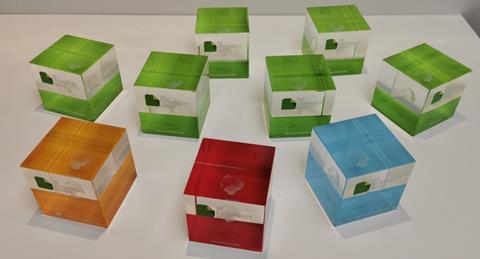
The 2020 edition attracted a record-breaking 275 submissions – up nearly 50% on last year’s record and representing every continent across the globe. The Awards featured a total of eight categories – Resource Efficiency, Best Practice, Bio-Based Packaging, Recyclable Packaging, Driving the Circular Economy, Machinery, Pre-Commercialised Innovation and the Readers’ Award.
Independently judged by an expert jury representing a cross-section of the international packaging value chain, including leading brand owners and retailers, sustainability organisations, waste management, academia and industry experts, the competition sees every growing engagements each year, assessing submissions from start-ups and global brands by the same, carefully considered criteria.
The competition this year was able to run thanks to the support of platinum sponsors Trinseo, KP, Avery Dennison, Tetra Pak, Taghleef Industries and Amcor, gold sponsors Evertis, Penn Color and Wipak, supporting associations Flexible Packaging Europe and APEAL, and supporting partners Tomra, Koehler Paper Group and Kuraray.
The winners in detail
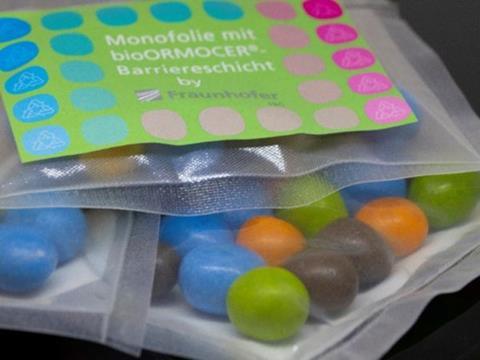
The overall ‘Best Sustainable Packaging Innovation’ award, as well as the award in ‘Bio-Based Packaging’, went to Fraunhofer Institute for Silicate Research for their bioORMOCER® biodegradable functional barrier coatings. The coatings are so thin (< 1-3 µm) that the coated packaging materials can be treated as monomaterial packaging. They significantly improve the barrier performance of conventional bio-packaging systems and offer good barrier properties against water vapor, oxygen, aromas and plasticizers.
Other finalists in this category included ATG Direct Inc’s ARES polyamide adhesives, monta Klebebandwerk’s monta biopack® bio-based adhesive tape and UPM Raflatac’s Forest Film.
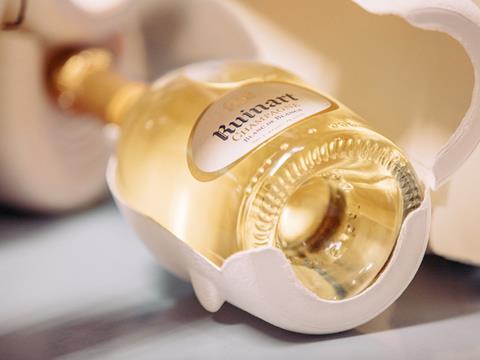
In the ‘Resource Efficiency’ category, the judges chose the ‘Second Skin’ paper champagne case that was created by a collaboration between Maison Ruinart, Pusterla 1880 and James Cropper France. The champagne caise is described as innovative, eco-responsible and ultra-light, and is crafted from natural wood fibers sourced from sustainably managed European forests, that is easily and fully recyclable.
The other finalists in this category were Huhtamaki with their Eco PBL 240/9 tube laminate, Frugalpac’s coffee cup from recycled paperboard and Danone’s Volvic 8: 100% rPET bottle.
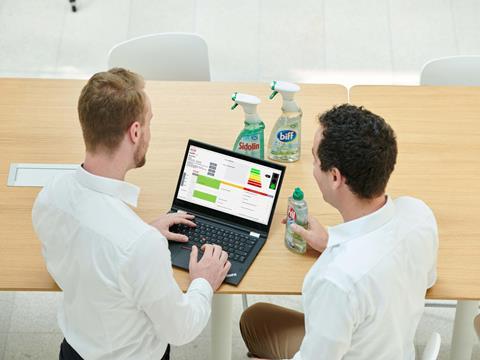
The winner in the ‘Best Practice’ category was Henkel Germany’s EasyD4R® publicly shared software tool for evaluating recyclability of packaging. It sets out to allow packaging developers to quickly and reliably assess the recyclability of packaging solutions made of plastic, paper, glass, aluminium and tinplate and identify possible areas for improvement.
An honourable mention goes to the finalists in this category, the Ecover recyclable and reusable laundry bottle by people against dirty, Sphera’s GaBi Packaging Calculator plus web-based LCA and Terracycle’s Loop reuse platform.
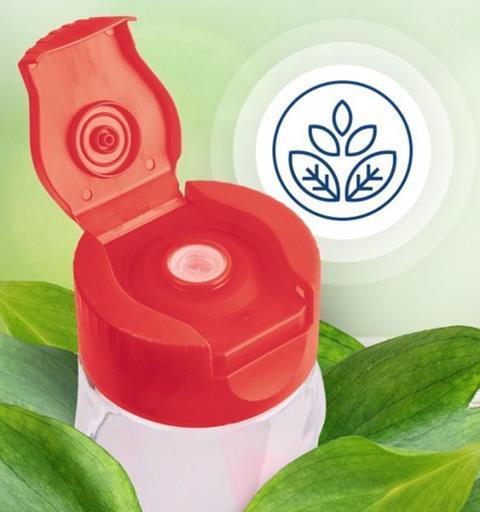
Bericap’s BericapValve silicon-free valve emerged victorious in the ‘Recyclable Packaging’ category. The valve possesses the same characteristics as traditional valves, but is made of TPE, a polyolefin that recycles with the HDPE and PP recycling stream without contaminating it.
In this category, the other finalists included Huhtamaki’s Push Tab loop recyclable unit dose pharma packaging, Max Speciality Films’ ultra-high barrier sandwich film, Korozo Flexibles’’ KORORCY mono-PE stand-up pouch and Amcor’s matrix paraffin-free paper-based packaging. There were five finalists in this category as two submissions in fourth place attained exactly the same total score.
.png)
Moving on to the ‘Driving the Circular Economy’ category, this year the honours went to PENN COLOR for their high opacity and premium whiteness PET with 0% TiO2 content, enabling better recyclability.
Other finalists in this category were P&G’s Ariel liquid detergent bottles with 50% HDPE, MIWA Technologies’ MIWA reusable packaging system, and TUBEX Aluminium Tubes’ Blue Tube Evo Lightweight 100% recycled aluminium tube.
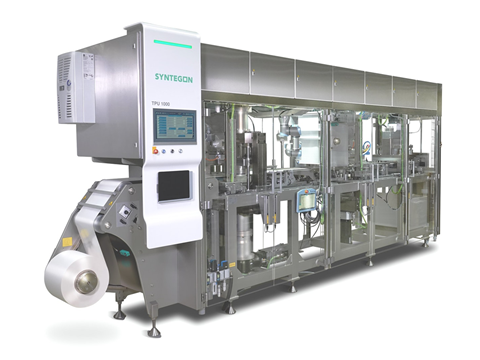
In the ‘Machinery’ category, Syntegon’s PaperForming technology impressed the judges the most. Syntegon’s TPU1000 Paperforming machine is specifically designed to form paper and paper-based materials. It can realise appealing packaging solutions and is suitable for various products and filling technologies.
The other three finalists in this category were Safe Load Testing Technologies’ Boomerang Horizontal Stability Tester, Highcon’s non-impact digital finishing technology and Fit Things’ Slimbox perfectly fitted packaging.
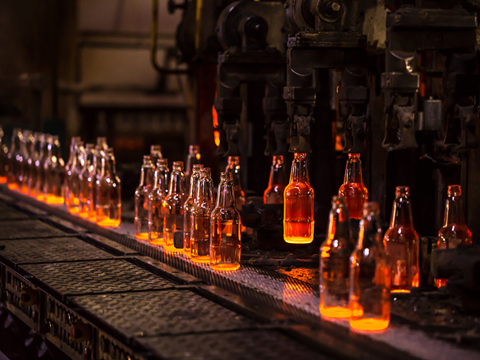
Ardagh Group took first place in the inaugural ‘Pre-Commercialised Innovation’ category for its Closing the Glass Recycling Loop method to produce briquettes from fine particle glass, a method for giving a new life to glass that is rejected during the recycling process, allowing 100% of recycled glass to be remelted into new bottles and jars.
This category also featured five finalists. The other contenders included Smart Coloring, FuturePackLab and Popular Packaging’s Color-in/Color-out decolouration process, P&G’s fully recyclable plastic aerosol container, BASF’s pilot packaging made with 100% chemically recycled material and Triple Line Technology’s sustainable aerosol foam dispenser.
Finally, our popular ‘Readers’ Award’ went to Beiersdorf’s for Nivea shower gel refill station – the first mass market example of its kind. Customers take an empty bottle from the station and fill it will the Nivea product of their choice, paying for their purchase using the printed label.
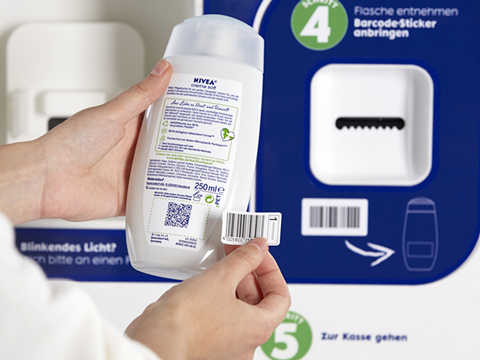
The other entries our readers could choose from included Dai Nippon Printing’s Functional Film Complex PET plastic bottle, Diageo’s 100% plastic-free, paper-based spirits bottle and Coca-Cola Brazil’s returnable bottle initiative.
Just as our Sustainability Awards ceremony moved online this year, so is the Sustainable Packaging Summit 2020. Join us for a season of world-class panels, workshops and networking sessions from 29th October to early December. Sign up for free here.














